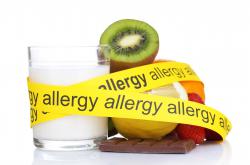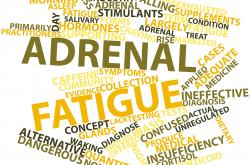The Relationship Between Depression And Tiredness
Depression and fatigue often go hand in hand. What are the symptoms and causes of depression and what are the best treatments for it?

What is depression?
One of the symptoms of depression is fatigue. And likewise, one of the symptoms of fatigue is depression. The two conditions often seem to go hand in hand and cause and effect is hard to determine. Most people, who suffer from chronic tiredness, can be helped by understanding more about depression and the best ways to treat it according to its specific cause.
Depression is an increasingly common illness. Women are twice as likely as men to suffer from it. Depression is much more than just feeling sad; it is long-lasting, potentially life-threatening and can be recurring. The signs and symptoms of depression include:
- Feelings of low self-worth, guilt, self-reproach and self-criticism
- Loss of interest in things that were formerly pleasurable e.g. sex, social activity
- Excessive crying or sometimes inability to cry or feel anything
- Eating too much or too little
- Moodiness
- Lack of purpose and motivation
- Poor sleep
- Suicidal thoughts
- Fatigue
It’s important to seek help if you have a number of these symptoms, particularly suicidal thoughts. Sometimes, depression strikes suddenly, but often the onset is gradual. If you are tired, you should evaluate your depression level from time to time. You can do it with the above list, or else consult a health care professional.
Causes of depression
The causes of depression range from nutritional, psychological, and circumstantial. As well as getting help, it’s really important that the underlying cause of depression is sought out because otherwise the depression will recur. The following are common causes of depression:
Circumstantial
The stress of loss, financial difficulties, uncertainties and divorce all take their toll. Quite often, it’s the cumulative effect of several smaller crises, which will cause depression. It’s important to develop coping skills, especially if you were not taught these as a child, and seek supportive counseling if necessary.
View of self
We all develop a view of ourselves based on that which our earliest caretakers had. Some people are less resilient than others because they had a more difficult start in life. If your childhood had some difficult experiences, you may want to explore ways of developing a more positive view of yourself as a person who is surviving and thriving.
Nutritional insufficiency
Lack of vital nutrients can considerably affect mood. Vitamins and minerals are the building blocks of the brain. Good brain function depends on having enough raw materials to form key neuro-transmitters. In addition, the brain needs certain fats, as it is itself composed of 60% fat.
Key vitamins, minerals and fatty acids are:
- Vitamin B group (especially biotin, folic acid, pyridoxine, riboflavin, thiamine, B12) [for more information about this group and how to supplement, please seeThe role of the vitamin B group in maintaining health and energy]
- Vitamin C
- Calcium
- Iron [please seeUnderstanding the importance of Iron]
- Potassium
- Magnesium [please seeMagnesium and fatigue]
- Copper
- Omega 3 Fatty acids.
Food intolerances and allergies
Food intolerances and allergies have a powerful influence on mood and feelings of well-being. Eating foods, which you are allergic to, often leads to depression and fatigue. There are a number of triggers for food sensitivities, including repeated courses of antibiotics.
[Please seeFood allergies and tirednessfor more detail].
Chronic illness
Chronic or long-term illness in yourself or a loved one is hard to deal with. Such situation often puts strain on relationships and can lead to one or both people becoming depressed.
Thyroid dysfunction
Depression is present in more than 50% of people with clinical hypothyroidism.
Adrenal insufficiency
As nearly 80% of people with adrenal insufficiency are depressed, the link between this condition and depression is strong. At times of adrenal stress, both hormones produced by this gland, cortisol and DHEA (dehydroepiandrosterone), are either produced in inadequate amounts or they are not well regulated and so levels are elevated when they shouldn’t be.
[Please seeWhat to do if you have adrenal fatigue, andSupplements for adrenal supportfor more details].
Chemical exposure
Both the brain and the nervous system are one of the first organs to be affected by chemical exposure. Many chemical solvents, pesticides, herbicides and other common pollutants are fat soluble and thus are drawn to the delicate tissues of the nervous system. Depression, lethargy, fatigue and confusion are common following exposure to environmental chemicals.
Inadequate sunlight
Many people who live in the higher latitudes, where there is less sunlight in winter, suffer from Seasonal affective disorder (SAD).
Treatment of depression
Since it’s important to establish the cause of the depression, it is worth getting some tests done – that is if you don’t immediately recognize your circumstances or view of life as being the cause of depression. The tests can include:
- Thyroid function test
- Neuro-transmitters e.g. epinephrine, serotonin (24 hours urine)
- Salivary cortisol (measured at specific times of the day)
- Whole blood histamine
- IgE or IgG tests for food sensitivity
- Tests for mineral and vitamin deficiency
- Urine or plasma amino acids
- Urine organic acid analysis.
Obviously the results of the tests may point the way to treatment.
In a crisis, anti-depressants are valuable, especially in the short term. It is worth bearing in mind that such drugs sometimes create fatigue as a side effect. Sleeping pills and tranquilizers also lead to daytime fatigue as the sleep they create is not of a very high quality. [Please seeSleep and tirednessfor more information about how to sleep well.]
It is also worth bearing in mind that the following nutritional substances have anti-depressive properties and you may want to also explore supplementing some of the following: phenylalanine, tyrosine, tryptophan, and hypericum.
It helps if you take regular gentle exercise and practice relaxation, as both have been proven effective in alleviating depression.
Please, readManaging stressfor more details on relaxation and stress reduction techniques.



















Leave a comment